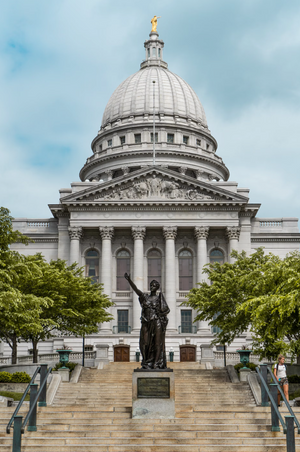I just got my free sample and it's a 10 out of 10 will be buying again! used to make a cocktail
Hi there! Thank you so much for taking the time to leave a review for our Lockhold 16mL Maeng Da Liquid Kratom Extract. We are thrilled to hear that you gave it a 10 out of 10 and that you will be buying it again. We're glad it worked well for you and we appreciate your support. Thanks again for your kind words and we hope to have you as a satisfied customer for a long time. Cheers!
The product does wonders for my anxiety and mood. So far its worked 100% of the time with anxiety. Like all the kratom shots, it has the kratom taste but nothing like most. This is rather mild and smooth. Quality akaloids.
Thank you so much for your kind review, Matthew! 🙏 We're thrilled to hear that our Lockhold Maeng Da Liquid Kratom Extract is making such a positive difference with your anxiety and mood! 😊 We strive to provide products that offer both a smooth taste and powerful effects. If you ever have any questions or need assistance, feel free to reach out.
To thank you for your loyalty, we’d love to offer you 10% off our big bottles with the code - Lockhold_Loyalty10 - at checkout, plus enjoy FREE SHIPPING on all future orders! We look forward to serving you again!
Im a veteran to kratom and this is my testimony. Ratings 10 out of 10 is hard to get out of me........8/10 for energy, 10/10 for anxiety. 8/10 for pain, 9/10 for mood enhancement. This is a great product that has worked wonders for my anxiety and my overall mood. I'm prescribed 2mg kolonapin and a shot of this works as well or better, because it also boosts your mood. It has a clean energy, not like coffee, no jitters. It provides me with motivation to do things I procrastinate with. I have tried the product 3 times and it has been consistent with the results. I do have chronic pain in my left foot and I noticed it wasn't bothering me like normal. Worked well enough i forgot it hurts to walk. I can't tell you if it works on serious pain since I have none.
It is not horrible tasting like many others. But it is worth a try!!!!
Hi Matthew,
Thank you so much for taking the time to leave a detailed review! We really appreciate your feedback and are glad to hear that our product has been helpful with pain and anxiety. We're always looking to improve, so your comments on the energy effects and dosage are valuable to us.
We'd love for you to give it another try, especially when your anxiety levels might be higher, as you mentioned. Please reach out to us directly at hello@lockhold.com, and we'd be happy to send you another sample to ensure you're getting the most out of it!
Thanks again for your support, and we hope to hear from you soon!
Best regards,
The Lockhold Team
Great customer service and legit stuff!
Hi Mich,
Thank you so much for your awesome review! We’re thrilled you had a great experience. 😎
Great customer service
Hi Michelle,
We really appreciate your kind words! So glad you enjoyed the product and our service. 🙌
This shot is pretty strong, so beginners, be careful. I drank a third of the shot at first, but if you have a kratom tolerance, I would just start with half of it. Good for pain relief. The only negative really is the taste: BIT-TER. But, it's medicine, so...
Hi JF G.,
Thank you so much for your detailed feedback! We're glad to hear that our Full-Spectrum Shot provided good pain relief for you. 😊 We appreciate the tip for beginners and those with kratom tolerance—that’s valuable advice for our community.
We understand the taste can be a bit strong, and we’re always looking for ways to improve the experience while maintaining the product’s potency. Your input means a lot to us.
Thanks again for sharing your experience and for supporting Lockhold!
Best,
The Lockhold Team
the product is amazing!!!!it's strong enough that you only have to take a small amount but It isn't so strong that it's over powering. Ur formula stopped the pain I feel from fibromyalgia but didn't make me sluggish like the painkillers doctors gave me. It felt natural and It also gave me energy and didn't get me anxious like other extracts!!! I will be buying more the minute I run out of what I have I'm so happy i found you guys!!
Thank you so much for your incredible feedback! We're thrilled to hear that our formula has helped with your fibromyalgia pain without the sluggishness or anxiety that other products may cause. It's stories like yours that inspire us to continue offering the best possible product. We're so glad you found us, and we're excited to keep supporting your wellness journey with Lockhold. Remember, we're always here for you whenever you need more—it feels good to feel good!
It's good and effective. Pretty good relief
Hi Maria, thank you so much for your review! We’re thrilled to hear that you found our Lockhold 16mL Maeng Da Liquid Kratom Extract good and effective. Your feedback is invaluable to us as we strive for excellence. We noticed you gave us 4 stars—was there something we could improve to earn that 5th star? We’d love to hear any suggestions you might have. Your satisfaction is our top priority!
I found this company and decided to try their extract. I placed the order, waited a few days and got it in the mail. When I went to open the package, I had a bit of an accident and the extract ended up all over my kitchen floor. I reached out to Lockhold, obviously feeling a bit defeated and explained what had happened. Now, they had every right to tell me to buzz off, but they actually didn't and infact went above and beyond to make things right for me. I was not expecting that from them to be honest, but that was my first hand experience with their A+ customer support. They made it right when they didn't have to and I found out quickly that the owners are extremely down-to-earth.
I was eventually able to try the extract and once I did, I was blown away by the potency. That's the first thing I noticed actually lol. I've tried other extracts on the market from varying vendors and have a pretty hefty tolerance at this point, but this was the first time I can say I was amazed by the effects. My first dose elicited a similar "glow" to my very first time trying kratom. Warm feeling in my abdomen and overall pleasant state of mind with lots of energy to boot. I was able to work efficiently and once off the clock, transition right into kicking off my shoes and relaxing. There wasn't any crash which I normally get around 4-5 hour mark. It's a gradual taper down to baseline so that's a relief. I absolutely would recommend it to anyone looking for a great product!
Thank you so much for taking the time to share your experience with our 'Judge.me Shop Reviews' product. We are thrilled to hear that it has not only met, but exceeded your expectations.
Your testimonial meant a lot to us and we are grateful for your support. We are happy that our product has helped you and we are confident that it will continue to find its way into the hands of those who need it.
We also want to thank you for sharing your picture of the product.
Thank you again for choosing Lockhold and we look forward to serving you in the future!
Thank you!
Lockhold Customer Service Team










